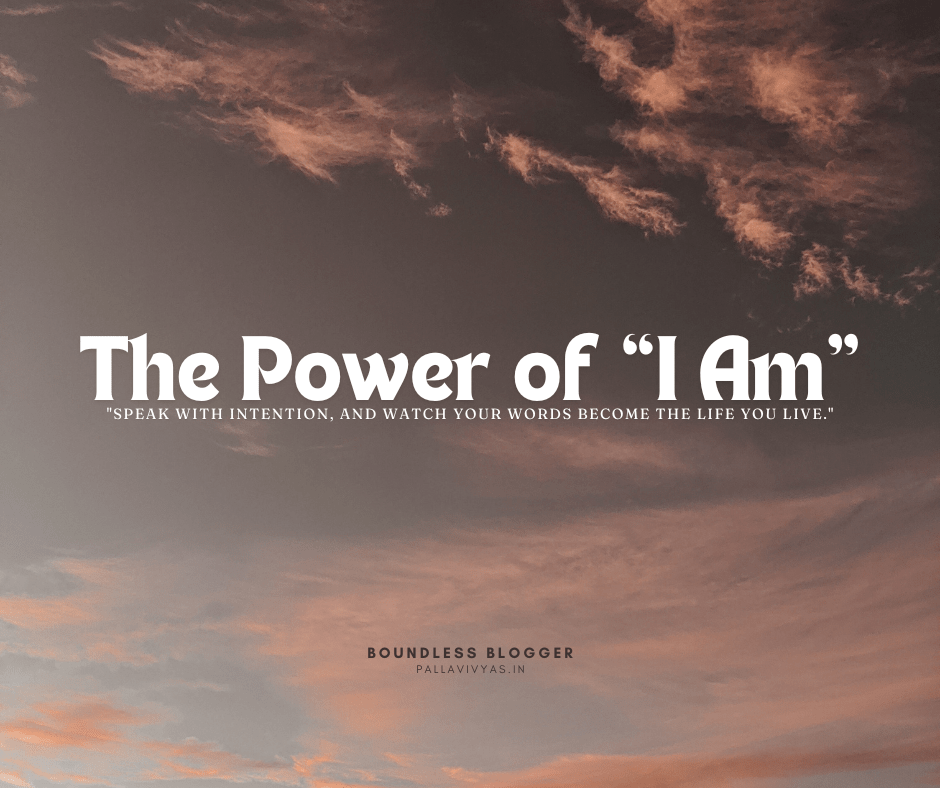“Speak with intention, and watch your words become the life you live.”
In a world where words carry immense weight, the power of “I am” statements often goes unnoticed. These simple phrases, though seemingly trivial, hold the key to shaping our reality. Every time you say, “I am,” you’re not just describing yourself—you’re defining your future. This article delves into the profound impact of “I am” statements, exploring how the words that follow can either build the life you desire or limit your potential. Discover the magic of intentional language and learn how to harness the power of “I am” to create a life filled with purpose and positivity.
“The power of ‘I am’ statements”
Have you ever noticed the profound impact words have on your life? Every sentence you speak, every thought you frame, begins with two simple yet powerful words: “I am.” These words are not just a prelude to self-expression—they are a declaration of your identity and intent. What follows them shapes the reality you live in, defining who you are and what you become.
This isn’t just an abstract idea; it’s an amazing fact of life. The phrases you choose after “I am” have the potential to manifest in your reality. Think of it as a form of self-fulfilling prophecy, where your words become spells, casting the future you will inevitably live.
The Magic of “Spell-ing”
It’s no coincidence that the act of forming words is called “spelling.” In many ways, each word is a spell—a creative force that has the power to bring ideas, emotions, and even physical realities into existence. When you say, “I am confident,” you begin to embody confidence. When you declare, “I am successful,” you start aligning your actions with success. Conversely, negative phrases like “I am not good enough” or “I am unlucky” can just as easily bind you to a reality of limitations and lack.
This concept is rooted in both ancient wisdom and modern psychology. Spiritual traditions have long emphasized the power of affirmations and mantras, which are essentially positive “I am” statements repeated with the intent of influencing the mind and spirit. Similarly, contemporary psychology recognizes the impact of self-talk on mental health and well-being. Positive affirmations are a common tool used in cognitive-behavioral therapy to help individuals reframe their thoughts and improve their self-perception.
Crafting Your Reality
Given this, it’s essential to be mindful of the words you choose to follow “I am.” Are they words that uplift and empower you? Or do they undermine your potential? Understanding the creative power behind these words allows you to become the conscious architect of your own life.
Next time you catch yourself saying, “I am,” pause for a moment. Consider whether the words that follow are aligned with the person you wish to become. If not, choose new words. Remember, every time you speak, you are casting a spell—one that can either bring you closer to your dreams or pull you further away from them.
The Call to Action
Start today by making a conscious effort to use positive, empowering “I am” statements. Whether in your thoughts or in conversations, let these words be a reflection of your highest self. You’ll find that over time, these small but significant shifts in language will lead to a greater transformation in your life.
Here are two references that support the concept of the power of “I am” statements:
- “The Miracle of Self-Talk” by Dr. Shad Helmstetter
This book explores the impact of self-talk on our lives, emphasizing how the words we say to ourselves, particularly “I am” statements, shape our beliefs, actions, and outcomes. Dr. Helmstetter explains how positive affirmations can rewire our brain, leading to improved self-esteem, confidence, and success. - “You Can Heal Your Life” by Louise Hay
In this bestselling book, Louise Hay discusses the transformative power of affirmations, including “I am” statements. She illustrates how these simple phrases can help individuals shift their mindset, heal emotional wounds, and create a more positive reality by altering their thoughts and self-perception.
These references provide a deeper understanding of the psychological and emotional impact of “I am” statements, reinforcing their significance in personal development.
Discover more from Boundless Blogger
Subscribe to get the latest posts sent to your email.
